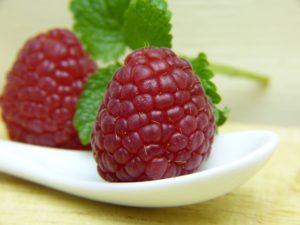The Many Benefits of Red Raspberry Leaf Tea

The Many Benefits of Red Raspberry Leaf Tea
Red Raspberry leaf tea is one of the safest and most commonly used tonic herbs for women. Specifically for those wanting to get pregnant or for women who are already pregnant. Red Raspberry Leaf (Rubus idaeus) tones the uterus, improves contractions, and decreases constipation. The herb comes in form of leaves to make teas or tonics as well as pill-like capsules you can swallow.
Red Raspberry Leaf Tea (RRL) or tonic, should be used regularly to be the most effective. However, there are benefits even from the occasional use of tonics during pregnancy, due to their nourishing factors. Most of the benefits of regular use of Red Raspberry leaf tea throughout pregnancy can be traced to the strengthening power of fragrine, an alkaloid. Which tones the muscles of the pelvic region, including the uterus itself. Plus the nourishing power of the vitamins and minerals found in this plant: including Vitamin C, Vitamin E, calcium, and iron. Raspberry leaves also contain vitamins A and B complex and many minerals, including phosphorus and potassium.
When to use:
There are two basic points of view on the subject. There is agreement among many clinicians that in the 3rd trimester frequent (2- 4 cups per day of tea or 1 – 3 cups per day of infusion) is beneficial to the uterine and pelvic muscles.
The more radical point of view is that drinking one cup of tea per day in the 1st trimester and 2 cups in the 2nd trimester and switching to the infusion in the 3rd trimester ensures a strong uterus, is good for you nutritionally and prevents miscarriage. Some say it is advised to not use it in the first trimester, particularly if you have a history of miscarriage. If a mother is prone to miscarriages she may feel safer avoiding raspberry until the third trimester. This is an herb with centuries of safe use behind it, there is usually little cause for concern but check with your healthcare provider before using it.

According to Susun Weed, author of “Wise Woman, Herbal for the Childbearing Year,” the benefits
listed below for drinking a Raspberry leaf brew before and throughout pregnancy are as follows:
- Increasing fertility in both men and women. Red Raspberry leaf is an excellent fertility herb when
combined with Red Clover. - Preventing miscarriage and hemorrhage. Raspberry leaf tones the uterus and helps prevent
miscarriage and postpartum hemorrhage from a relaxed (atonic) uterus. - Use raspberry leaf infusion can be used to help facilitate placenta delivery. Many of our clients suck on ice chips of frozen raspberry leaf infusion sweetened with honey throughout labor to help keep the uterus working strongly and smoothly.
- To ease morning sickness. Many women attest to raspberry leaves’ gentle relief of nausea and
stomach distress throughout pregnancy. Drink a cup or two of raspberry leaf tea or infusion each day. - Reducing pain during labor and after birth. By toning the muscles used during labor and birth,
Raspberry leaf may eliminate many of the reasons for a painful birth and prolonged recovery. - Red Raspberry Leaves do not start or encourage labor. It can help the existing contractions to be productive once true labor has begun so drinking it in labor can produce more productive labor.
Learn more tips and tools in our comprehensive birth classes.
Learn more about your birth options in our comprehensive birth classes.
Tea recipe:
To make a tea, pour 1 cup of boiling water over 2 teaspoons of herb and steep for ten minutes to 30 minutes. Strain. During the first two trimesters, drink 1 cup per day. During the final trimester, drink 2-3 cups per day.
How does it taste?
Raspberry leaf tea is a robust tea reminiscent of a fine-black tea. It can be sweated as desired. Honey seems to be best with an infusion.
Remember:
To speak with your provider before beginning drinking red raspberry leaf tea or taking a supplement. Different providers may also give you different answers depending on their experience and knowledge with supplements.
Excerpts from Weed, Susun. “Wise Woman Herbal Childbearing Year. ”http://www.motherandchildhealth.com/Prenatal/raspberry.html
